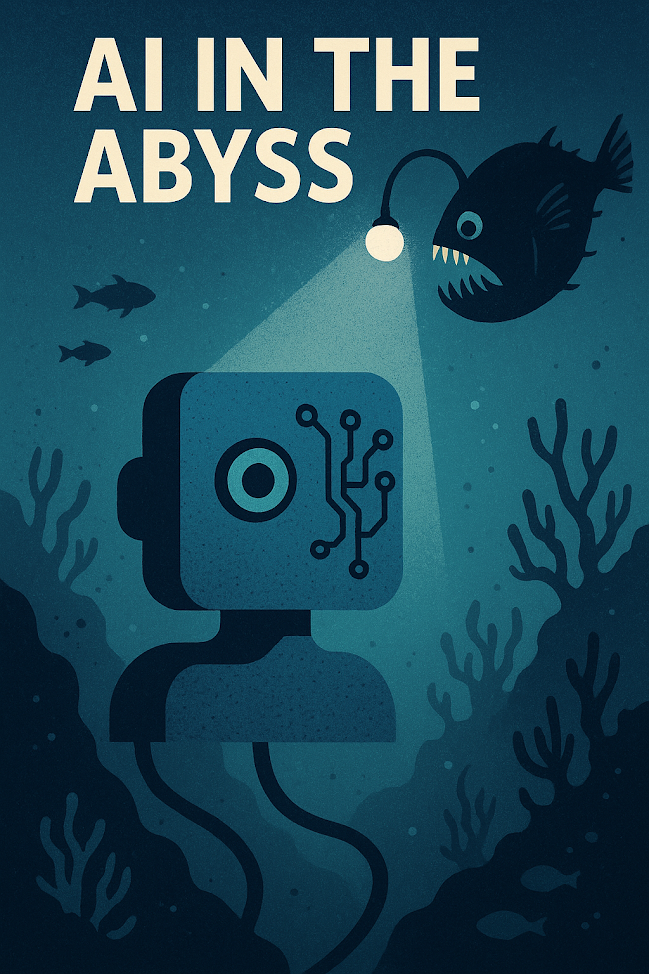The mysteries of the ocean's deepest trenches have long eluded even the most advanced scientific efforts. But artificial intelligence is now enabling researchers to explore, map, and understand the abyss in ways once deemed impossible. From image recognition to autonomous navigation, AI is revolutionising deep-sea exploration.
By Stuart Kerr, Technology Correspondent
Published: 9 July 2025
Last Updated: 28 July 2025
Contact: [email protected] | Twitter: @LiveAIWire
Author Bio: About Stuart Kerr
Mapping the Unknown with Machines
For decades, the deep sea has been a frontier of darkness, pressure, and logistical challenge. Today, machine learning algorithms are transforming that void into a data-rich domain. At the forefront is FathomNet, an open-source image database developed by MBARI to train AI systems in identifying deep-sea organisms. With thousands of labelled images, the dataset powers robotic vision systems capable of recognising creatures and structures miles below the surface.
Meanwhile, The FutureList details how deep-sea autonomous vehicles (AUVs) are now equipped with swarm intelligence protocols, enabling coordinated missions that can cover more terrain than any one vessel could achieve alone.
Autonomy at Crushing Depths
One of the most transformative shifts has been the deployment of AI-driven robots that operate without real-time human oversight. The BR-II platform, profiled in Wired, roams the ocean floor to study carbon cycles and benthic ecosystems entirely on its own. It can adapt to unexpected obstacles, re-route around volcanic ridges, and prioritise data collection based on onboard analysis.
This kind of distributed intelligence echoes the principles discussed in Invisible Infrastructure, where unseen networks and agents take on decision-making roles beneath the surface of both machines and ecosystems.
From Observation to Interpretation
Deep-sea footage has long required marine biologists to spend hours manually labelling creatures caught on camera. AI now handles that task in minutes. A Nature study demonstrates how convolutional neural networks trained on pre-labelled datasets can identify over 150 classes of marine life in remotely operated vehicle (ROV) footage with high accuracy.
Similarly, the CLOINet project uses sparse observations and deep learning to reconstruct full 3D models of ocean conditions. This enables a level of real-time monitoring previously reserved for shallow coastal regions or surface weather systems.
Risks and Responsibility
But greater autonomy brings greater responsibility. How should researchers validate AI models operating in inaccessible places? What safeguards exist to prevent data corruption or algorithmic bias in such a critical domain? These questions mirror those raised in The Automation Divide, where decentralised systems risk outpacing human oversight.
As AI expands into marine ecosystems, the challenge will be to balance innovation with stewardship. The ocean, after all, is not just a data field — it's a living, breathing environment.
A New Era of Ocean Discovery
From species identification to oceanographic modelling, AI is accelerating deep-sea science at a pace unmatched by any previous tool. The next decade may see robotic teams mapping trenches we’ve never reached, unlocking insights into climate change, biodiversity, and even medical innovation drawn from abyssal organisms.
As we explore further into the deep, intelligent systems won’t just be assisting scientists — they’ll be leading the way.
About the Author
Stuart Kerr is the Technology Correspondent for LiveAIWire. He writes about artificial intelligence, ethics, and how technology is reshaping everyday life. Read more

